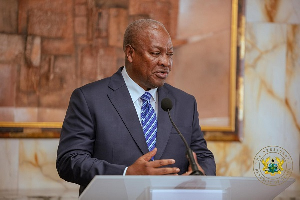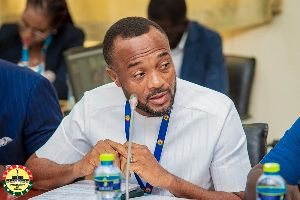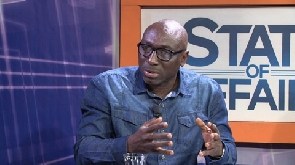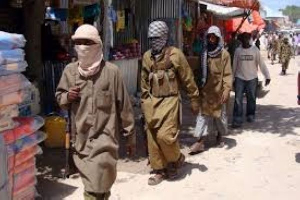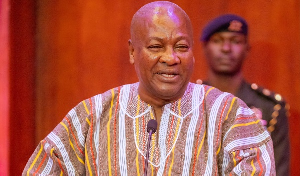At the start of his second term as president of Ghana, John Dramani Mahama initiated efforts to revive ties with three fellow West African countries otherwise ostracised by a mutual disagreement on political paths.
Mali, Niger and Burkina Faso have cut links with the Economic Community of West African States (ECOWAS) to establish their own Alliance of Sahel States (AES) after ECOWAS suspended their membership in relation to military interventions in the three countries.
Between March 8 and 10, 2025, President Mahama shuffled his path across the three Sahelian states as the world watched the first real effort among global leaders to reunite with those countries.
Military interventions had happened in successive years in the three Francophone countries, giving cause for concern among global leaders about the continent's possible relapse into a new era of dictatorship.
General Asimi Goita, now 41, seized power in Mali in May 2021, while Captain Ibrahim Traore, now 37 years old, took power in Burkina Faso in September 2022.
Niger followed in July 2023 when General Abdourahamane Tchiani, currently 63 years old, assumed the reins of power through a coup de tat.
ECOWAS subsequently suspended the three countries, demanding a return to constitutional rule. Indeed, the economic bloc at a point suspended trading relationships with the affected countries to compel them to yield to democratic rule.
Those three countries, who ultimately defied the threats of ECOWAS, appeared United by their common circumstances. They had endured a barrage of terrorist attacks that threatened to ruin their countries altogether.
Yet, in similar alignment to a common fate, they united in shedding the weight of their common French colonial masters to redeem themselves from all of what they said had dragged them back.
According to news portal TRTGlobal, “Mahama discussed bilateral relations, economic growth, and regional security concerns in the Sahel region with his counterparts, official statements said”.
During his visits to the three, President Mahama emphasised that there must be a way to work together whether or not they reunited under the umbrella of ECOWAS.
Indeed, TRTGlobal reported that during his visit to Mali, “President Mahama highlighted that despite the AES countries leaving the Economic Community of West African States (ECOWAS), the ‘brotherly love’ between their people should continue”.
Burkina Faso, Mali, and Niger formed the AES in September 2023 and formally withdrew from the ECOWAS regional bloc in late January 2024.
The trio of West African nations had decided to deploy a joint force of 5,000 soldiers to tackle growing security challenges posed by terrorist groups in the region.
The military-led governments also launched a common passport and had plans for a joint web television channel to combat “disinformation”, the new portal added.
President Mahama’s efforts come at a time the continent has revived talks about reparations and adequate compensation from the West for the colonilisation, perpetration of slave trade against the people of Africa, and subjecting them to other dehumanising conditions centuries back.
During the AU summit in Addis Ababa, Ethiopia, in February this year, President Mahama launched a renewed call for reparations to the continent, as he rallied fellow African leaders to the common cause.
While Africa remains united under the African Union (AU), the various blocs under the AU project their own separate agendas.
The breakaway by Mali, Niger and Burkina Faso is, however, a new proposition that has challenged the continent’s leaders to find innovative ways to prosecute their shared goals.
As stated by Gilbert Arhinful Aidoo, a lecturer at the University of Education, Winneba in Ghana, in an interview, “colonisation disrupted Africa's natural development trajectory, exploiting its resources, dismantling indigenous systems, and leaving behind fragmented economies and governance structures. Reparations could help fund critical infrastructure, education, healthcare, and technological advancements, which are essential for economic growth”.
Dr Samuel Kofi Darkwa of the Institute for Economic Affairs (IEA) also added that the call for reparations by African countries “highlights the urgent need for collective action in securing reparative justice”.
He further stressed that President Mahama’s call on the subject of reparations to the continent emphasised “the importance of joint efforts to address the historical injustices that continue to affect Africans and people of African descent worldwide”.
Last week, different sets of interviewees embraced the idea of reparations for Africa, with some advocating the institution of a Pan-African Movement to champion this agenda.
Ghana’s first President, Dr Kwame Nkrumah, is viewed as perhaps the foremost Pan-Africanist for his ideals to project the interest of the African and the continent. When he led Ghana to Independence from British rule, he famously stated that “the Independence of Ghana is meaningless unless it is linked with the total liberation of the African continent”.
Ghana’s foremost place in Pan-Africanism has since been secured in the history of the continent, as it produced many pioneer activists in various fields of endeavour.
President Mahama, who became the first to return to the presidency of Ghana after his earlier term ended with an electoral defeat in 2016, has now become the rallying factor of a new African unity.
Perhaps, Mr Mahama remains the biggest hope to achieve the ideals of a Pan-African movement for the various purposes it could serve in years to come.
Opinions of Friday, 28 March 2025
Columnist: Ben Lawson

